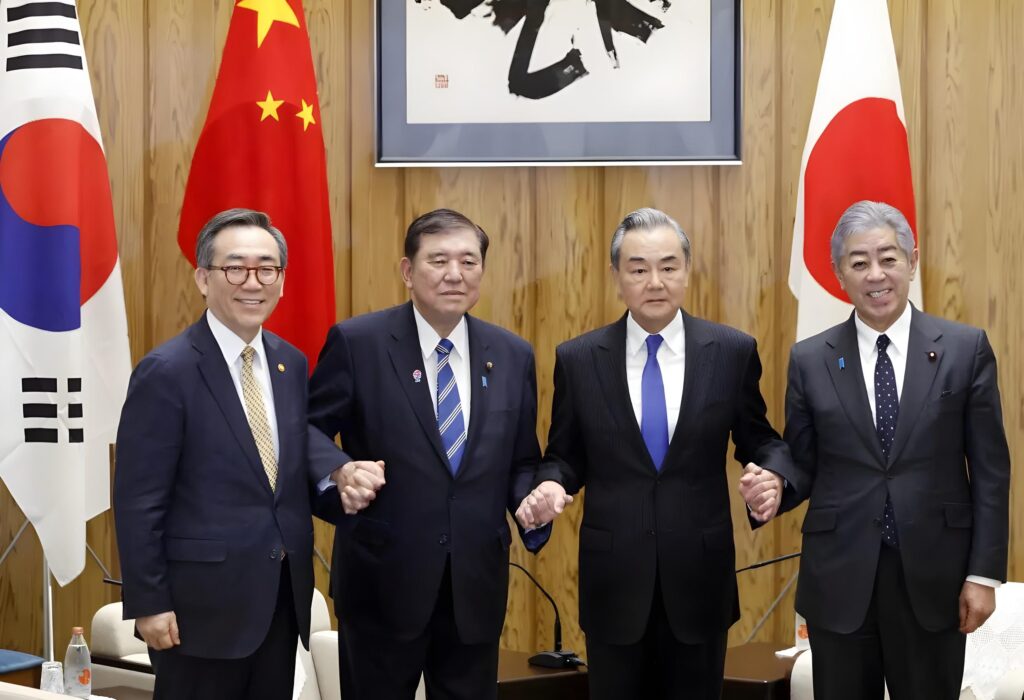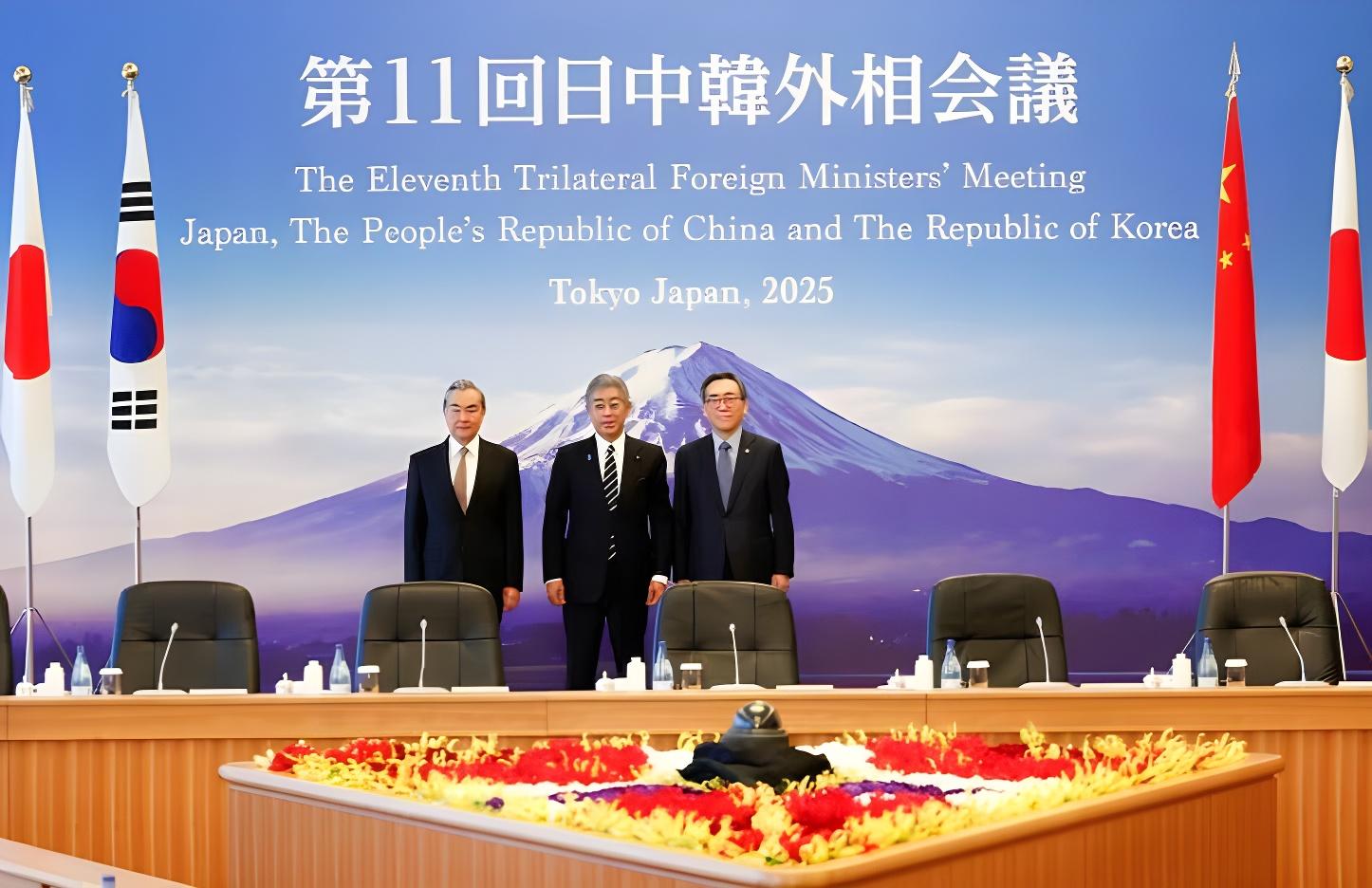Amid rising geopolitical uncertainty, top diplomats from Japan, China, and South Korea met in Tokyo on Saturday, confronting security threats and economic challenges in a rare trilateral dialogue. With shifting alliances and mounting tensions, the talks could reshape East Asia’s power dynamics.

Japanese Foreign Minister Takeshi Iwaya, alongside Chinese counterpart Wang Yi and South Korea’s Cho Tae-yul, called the meeting a historic turning point. The three nations agreed to fast-track a long-awaited trilateral summit in Japan, prioritizing economic cooperation, declining birthrates, and aging populations.

This marks the first high-level engagement since 2023, coinciding with U.S. President Donald Trump’s foreign policy shake-up, which has disrupted long-standing alliances and opened new diplomatic opportunities for China. Wang Yi emphasized China’s economic influence, citing a $24 trillion output and pushing for expanded trade partnerships.

Yet, deep rifts persist. Tokyo and Seoul remain cautious of Beijing’s growing military presence near Taiwan, its support for Russia in Ukraine, and its unwavering ties with North Korea. South Korea’s Cho Tae-yul urged China to rein in Pyongyang’s nuclear ambitions and halt military cooperation with Russia. “North Korea cannot be rewarded for its actions,” he stressed.

Japan’s Iwaya will also hold separate high-level talks, including the first economic dialogue with China in six years. A major friction point: Beijing’s ban on Japanese seafood imports following the Fukushima wastewater release.
With tensions at an all-time high, this meeting could either forge stronger regional cooperation or deepen divisions. As the world watches, the outcome may decide whether East Asia moves toward stability or spirals into further geopolitical strife.

